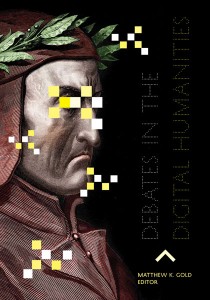I’m a level 2 PhD student in the Molecular, Cellular and developmental biology program here at the GC. I am currently working on a characterizing a population of cells in one of the mammalian (altricial rodents) auditory brainstem nuclei (a specialized region of the brain). By characterizing I mean that I’m trying to ascertain the role and function of these cells as the animal grows and develops hearing. Last semester was my first time teaching and I think it was a great experience especially while taking the first core ITP class at the same time, so I was able to garner some perspective on at least the pedagogical references.
To get straight to the project ideas, I am only going to really mention two of them since after some consideration I think these are the more relevant and interesting of the three I initially mentioned in class.
1. To develop an interactive online system for the average science graduate student to use in teaching. There should be a way for students to asynchronously post assignments and comments and work in groups with instructor involvement and direction. I want this to be specific to the needs of teaching undergraduate science classes, since the needs are somewhat different from the humanities.
These needs include detailed guidance and visual aids and models for understanding concepts in empirical science (multimedia and internet based resources) with directed examples of problem solving while not losing sight of the big picture (think of zooming out in a Prezi) of either the core of the subject or the current state of science in that particular field. Almost all introductory science classes have a laboratory component which is great for hands-on demonstration and practice of applied science, but I feel like systems like blackboard do a poor job of allowing the smaller lab sections of say 20 students to interact and build a community and work together to solve problems. This is virtually impossible when these same students are lumped into a giant group of 400-500 for the lecture component of the same course. I found that students usually form groups and work together of their own initiative but the lack of guidance of an instructor lends to the development of more coping mechanisms than actual learning and hinders their progress not just in the class but in subsequent classes that require salient knowledge of the fundamentals taught in these introductory classes. I want to build and set up this system primarily with the student and instructor in mind and have it transferrable for almost any introductory science class. I definitely do agree with Bill Pelz that students can teach themselves alot with the right guidance as i have observed and attempted last semester.
2. To tell the entire story of progenitor cell differentiation and the roles in auditory function in my current research project in a multimedia animation
This might sound pretty self-explanatory. No?
I study these cells that are kind of like stem cells, meaning they are like very young cells that I don’t know what kind of cells they will gradually become. What I do know so far is the possibilities of different cell types into which they gradually differentiate. There is a big debate in the field as to the origin of some glial cells (the support or non-brainy/neuronal cells which make up the white matter in the brain and spine) and since these cells tend to grow and change throughout life and are vital for continued neuronal function (everyone likes a working brain right?), I think it’d be awesome to actually visually show in an animation what my research will show: specifically where they come from, what they do and what they become and where they go in the auditory structures in the brain. It would be great to make it a platform that someone can add or build to so that if you wanted to you could trace the lineage of a particular cell type in one part of the brain, back to it’s origins during part of development (say embryonic week 2). I believe something like this has been done on small simple scales for the whole brain of other model organisms in biology like c. elegans (worms) and drosophila m. (fruit flies), but not in mammals. It would be like creating a cellular map of part of the auditory brainstem. This is clearly a less well defined idea than the former, but it’s still another idea.




Recent Comments